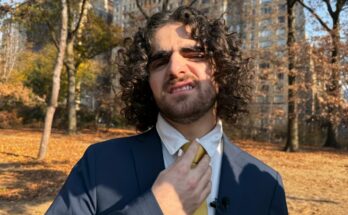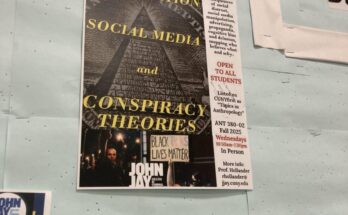By Elihu Fleury
CITY COLLEGE OF NEW YORK — Tom’s parents left Bangledesh and brought him to the United States when he was five. They wanted him to have a better life than they had growing up. They settled in Elmhurst, Queens where he made friends, went to elementary school and Newtown High School. He doesn’t want his real name used, but he wants his story told because he’s upset about President Trump’s sudden withdrawal of the Deferred Action for Childhood Arrivals (DACA) program.
He always thought of himself as a legitimate American. “I didn’t know that I was an ‘illegal’ until the age of 14”, he said. “It’s hard to explain the feeling.”
As soon as President Obama created DACA in 2012, Tom applied. He got a Social Security number and a permit to work. He immediately got a job and developed a strong work ethic that earned good reviews from his supervisors.
DACA gave him a real sense of freedom and security, and allowed him to follow his passions including weight lifting. His regular routine includes work, study, friends and exercise. In other words, he lives a typical New York life.
“I don’t know any other country but the United States,” Tom complained bitterly. “It’s my home, not Bangladesh. I grew up here, I met my best friends here, I went to my first concert here, I had my first kiss. None of that in Bangladesh.”
Deferred Action for Childhood Arrivals (DACA) gave him hope. DACA guarantees work permits and deportation relief to immigrants brought illegally to the U.S. as children.
President Trump plan to repeal it threatens the future of 800,000 Dreamers like Tom.
Dreamers and other protested all across the country. Their colleges supported them. Some offered sanctuary and advice to protect them from immigration agents. 15 state governments filed a joint lawsuit to prevent the DACA rollback. California filed its own lawsuit because about 30 percent of DACA residents live there. Six Dreamers in San Francisco also filed a lawsuit, saying that the repeal “was motivated by unconstitutional bias against Mexicans and Latinos.”
Tom felt more immediate effects. He had an interview for a job as a teller at a Manhattan bank before Trump announced the end of DACA. He almost didn’t go. “Because of the now dead DACA, I was very unenthusiastic about the interview and had to force myself to pretend that I cared about the interview,” he said.
He got the job. But his DACA eligibility expires soon and he doesn’t know what he’ll do.
In fact, his immigration status affects his motivation to finish college. “I’m so close to graduating, but once I do and can’t work, then what was the point?”, he explains. He continues to worry and says, “Normally I would be very motivated that all of my hard work paid off, and I had an opportunity for a position I’ve wanted for the longest time, but now it’s really hard for me to care.”
Tom seems like a confident 22 year-old-man, but inside he shares the turmoil experienced by other Dreamers. He fears deportation and thinks about it constantly.
It makes him angry. “ICE can suck it,” he almost spat. “They treat immigrants and ‘illegals’ like trash, not humans”. He pointed out that he has no criminal record and “I don’t plan on having a record so I hope I don’t get deported. I plan on working for as long as I can, either at the bank or any other job I hope to get.”
Glimmers of hope exist. In the past few weeks, Mr. Trump began working with Democrats on a deal to preserve DACA. Yet nothing concrete has happened.
For Tom, a solution can’t come soon enough. “If I do end up getting deported, that would really suck,” he said, ”and that’s the most ‘PG’ way I can put it.”




